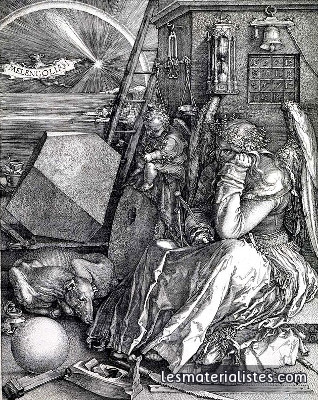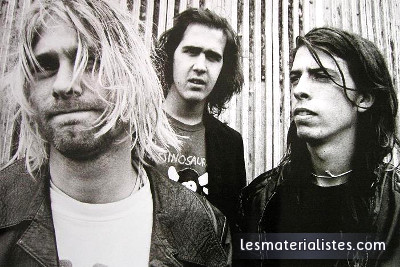Nostalgia according dialectical materialism
Submitted by Anonyme (non vérifié) What is nostalgia? It is an important question, because it is a very common feeling. In fact, we should say that it is a very common feeling in the non-communist society. Why that? Because nostalgia is rooted in the non-understanding of a contradiction. The lack of synthesis brought a situation where the contradiction was not resolved in a progressive manner. Because of this, there is a “skeleton in the closet”.
What is nostalgia? It is an important question, because it is a very common feeling. In fact, we should say that it is a very common feeling in the non-communist society. Why that? Because nostalgia is rooted in the non-understanding of a contradiction. The lack of synthesis brought a situation where the contradiction was not resolved in a progressive manner. Because of this, there is a “skeleton in the closet”.
If we take the example of love, or romance, we can see that the reasons for the failure were thoughts like “he has not enough money”, “she's not beautiful enough”, “better safe than sorry”, “to flee happiness by fear that it runs away”, etc.
Opportunism can exist, but can't obliterate the human reality. And the brain is here like a non rewritable CD. Once it is written, nothing can be erased. But what is in the brain can be overstepped, through a process of synthesis. For this reason, “mad people” need to work, to transform; it is only in transforming reality that they will understand the process of transformation, and also transform themselves.
The concept of transformation is very far from non-communist ideologies, of course, be it capitalist or feudal. And we can see that most of the songs produced for the masses are playing in a gloomy way with nostalgia, strengthening it, showing life as a succession of sequences of failures, lost happiness, etc. The more commercial a song is, the more it plays with “nostalgia”, pretending to be “popular”, as if nostalgia would be a common feeling of discomfiture.
 Where does the concept of nostalgia come, indeed? The word nostalgia itself comes for the greek νόστος (nóstos), meaning “homecoming” and ἄλγος (álgos), meaning “pain, ache”. This is a romanticist way of understanding the world, showing “warriors” thinking about home, when in fact their way of life is incorrect. And in fact all the existentialist philosophy plays on nostalgia to justify the existence of the “ego”, of what the religion calls the “soul”.
Where does the concept of nostalgia come, indeed? The word nostalgia itself comes for the greek νόστος (nóstos), meaning “homecoming” and ἄλγος (álgos), meaning “pain, ache”. This is a romanticist way of understanding the world, showing “warriors” thinking about home, when in fact their way of life is incorrect. And in fact all the existentialist philosophy plays on nostalgia to justify the existence of the “ego”, of what the religion calls the “soul”.
But what do we see? That people can be “home-sick”, like they can be “far-sick”, what German romanticism calls “Heimweh” and “Fernweh”. There is a “nostalgia” to go home like there is one to leave it, to travel, to move away – so there is no “nostalgia” here, but the need to move to transformation.
Therefore we should say here that dialectical materialism will improve the scientific difference between nostalgia – a reactionary concept and feeling – and melancholy, which is the normal form of the human being in the process of synthesis.
It is totally logical that the imperialist ideology tries to erase melancholy, explaining that it is a sickness. Capitalism doesn't want the process of synthesis to happen, therefore it makes everything to make looking as a fool those who say stop and begin to think, to synthesize.
 It is particularly clear with the movies, where introspection is attacked, for the benefit of individualism. The “Iron Man” comic, like most of the super heroes comics (by the way a fully idealistic concept), shows a tormented man, thinking about his situation, even falling in alcoholism, whereas the movie show a “playboy” taking nothing serious, just lamenting in an aristocratic way about himself.
It is particularly clear with the movies, where introspection is attacked, for the benefit of individualism. The “Iron Man” comic, like most of the super heroes comics (by the way a fully idealistic concept), shows a tormented man, thinking about his situation, even falling in alcoholism, whereas the movie show a “playboy” taking nothing serious, just lamenting in an aristocratic way about himself.
There is no depth, no intensity. And that is why people like Kurt Cobain, why movements like grunge, even if they are complaisant with their torments, have a historical signification: it shows the necessity of synthesis, of facing the unbearable capitalist society, the obnoxious semi-feudal society.
Melancholy can realize itself in the scientific criticism of society, nostalgia can't; melancholy is able to understand the need of communism, nostalgia is a vector of anti-capitalist romanticism, of fascism.
The only inner life of the human beings is the reflexion of the movement of matter.
